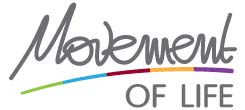Our Free Knowledge for All campaign works towards ending global illiteracy. We believe that everyone should have the widest possible access to knowledge through modern digital technologies.
According to the United Nations Educational, Scientific and Cultural Organization (UNESCO) there are around 750 million people worldwide who still cannot read or write. Illiteracy is particularly prevalent in sub-Saharan Africa, where more than 250 million children currently don’t even have access to school.
Without being able to read and write, a person’s access to knowledge is highly limited. This has knock-on effects not just on their income and the type of work they are able to do, but also on their health and lifespan. Studies show a clear link between educational attainment and life expectancy.
In essence, our entire Movement of Life project is about education. We believe that education is a human right and that it should be provided freely to everybody. Without universal access to the widest possible knowledge and education, true freedom of speech doesn’t exist. What we don’t know about, we can’t think about or speak about.
While education is already provided freely to citizens in some countries, basic information on key subjects such as science-based natural health approaches continues to be withheld. Even most medical schools provide little or no training in nutrition, for example. This results in doctors knowing next to nothing about the thousands of studies demonstrating the safety and effectiveness of nutritional and Cellular Medicine. The only beneficiaries from this withholding of knowledge are the trillion-dollar-a-year drug industry and its investors.
The picture at the top of this page illustrates some of the work we are doing to make Free Knowledge for All a reality. At a project we are running in schools in Uganda, children are learning about Cellular Medicine and discovering how deficiencies of vitamins, minerals and other micronutrients are the primary cause of today’s most common chronic diseases. The children also learn how fruits and vegetables are good sources of these essential micronutrients. Putting theory into practice, they then grow the fruits and vegetables they have been learning about in the school garden.
The project in Uganda therefore provides a good illustration of how our campaigns are interlinked. Health for All can only be possible once Food for All and Knowledge for All become a reality.


